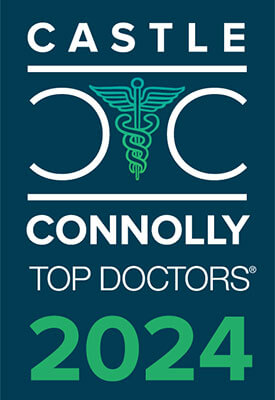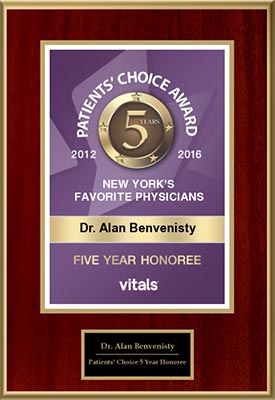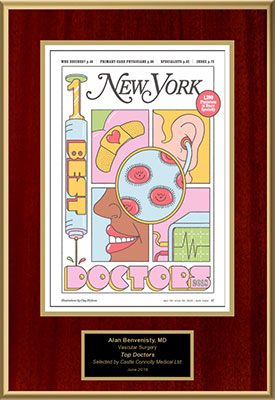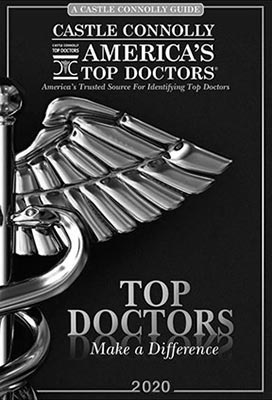Aortic Stenosis
Stenosis of the aortic valve is a condition describing the narrowing of the aorta, and as a result, the blood supply to the body is decreased causing strain on the heart. Specifically, aortic stenosis occurs at the opening of the aortic valve and restricts blood flow from the left ventricle of the heart. With time, the wall of the left ventricle may thicken due to the ventricle working harder to pump blood. Naturally, a thickened wall takes up more space within the lower chamber of the heart, and blood supply is affected. Thus, while aortic stenosis is a quite common aortic condition, it is a very serious valve disease.
Perhaps the greatest concern regarding aortic stenosis is that individuals may not experience any notable symptoms until the condition has progressed and blood flow has dramatically reduced. Even so, the following symptoms are associated with aortic stenosis:
- Shortness of breath, breathlessness
- Chest pain (including angina, pressure or tightness)
- Palpitations (irregular or pounding heartbeats)
- Syncope (fainting), or dizziness
- Decline in physical activity (including activity with mild exertion)
- Feelings of fatigue, lethargy (especially with physical exertion)
- Heart murmur
While the above-mentioned symptoms can easily be attributed to other health conditions or illness, it’s important to take notice of congenital or pre-existing valve conditions that may make younger individuals susceptible to developing aortic stenosis. An example is a bicuspid valve, which is a birth defect where only two cusps grow instead of three. In turn, if the opening of the valve does not develop properly as the individual ages, the heart must work harder to pump blood. This can also result in aortic stenosis as calcium build-up within the valve causes it to narrow. Ultimately, calcification increases the chances of developing heart failure.
Delivering conscientious and patient-centered care, Dr. Alan Benvenisty, MD is a distinguished general and vascular surgeon in New York City with expertise in vascular diagnosis and a particular interest in non-surgical, non-invasive treatments. If you or a loved one have been diagnosed with aortic stenosis, or if you are experiencing symptoms associated with stenosis, Dr. Benvenisty invites you to contact his office to schedule an appointment today.
Treatment Options for Aortic Stenosis
When it comes to treating aortic stenosis, there are a variety of options—some include medications to monitor the condition, while others include treatment procedures to repair the valve obstruction. In essence, treatment depends on proper diagnosis of aortic stenosis and the extent of the narrowing of the aortic valve. Tests administered may include: x-ray, electrocardiogram, echocardiogram and cardiac catheterization.
Regardless of the presence of symptoms, it’s advisable for all patients with aortic stenosis to be checked with an ultrasound of the heart (echocardiogram). An echocardiogram is not only safe—it provides crucial insight needed to determine the best treatment. As noted, treatment may consist of medications such as diuretics, beta-blockers, nitrates or high blood pressure medication. Some individuals may be instructed to avoid strenuous physical activity.
In cases where severe aortic stenosis has been detected, the following represent treatment options and repairs:
- Balloon valvuloplasty: In an attempt to open or enlarge the aortic valve, a catheter with a deflated balloon at the tip is inserted through an incision in the groin and is threaded through to the arteries of the heart. The balloon is then inflated, and the aortic valve expands.
- Aortic valve replacement: Replacement of the aortic valve is a traditional, open-heart procedure in which the diseased valve is replaced with a new one. Two types of valves may be implanted—bioprosthetic or mechanical prosthetic. The latter is more durable, lasting 20-40 years.
Minimally Invasive Treatment for Aortic Stenosis
As a new, sophisticated and minimally invasive method of replacing a diseased aortic valve, transcatheter aortic valve replacement/implantation (TAVR/TAVI) brings a great advantage to patients that cannot tolerate open heart surgery due to frailty or other health conditions. Surgeons insert a collapsed bioprosthetic valve through an incision in the leg. The valve is threaded to the heart where it simply expands and moves the damaged valve out of the way. Thus, the new bioprosthetic valve begins functioning in place of the old valve.
Dr. Alan I. Benvenisty, MD is a renowned general and vascular surgeon committed to the philosophy of treating patients as individuals. With a particular interest in non-surgical and minimally invasive treatment techniques, Dr. Benvenisty is affiliated with several hospitals in metro New York. This is including Mount Sinai Hospital, which is the only hospital in the metro area performing both types of TAVR/TAVI—CoreValue and Edwards Sapien. If you have been diagnosed with aortic stenosis and would like to meet with Dr. Benvenisty, he is currently accepting new patients at his office on Amsterdam Avenue. Contact us today to schedule a consultation.







